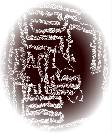Miscarriages of justice - summing up
Some legal experts and journalists have been sounding warnings, going back many years, that our British justice system is not how we used to think it was - at least if fortunately placed and confident of standing up for ourselves. As we dig deeper we find that being fortunate is apparently not some innate right that will leave us untouched by mistakes or practices that allow - or push through, errors or miscarriages of justice that are bigger than a London bus. What happened to those much touted 'human rights', apparently designed to protect citizens from over-vigilance or ineptitude by the State in which they live?
Having made their way through the legal system, these mistakes or miscarriages are not easily remedied - if victims feel that they can ever be properly remedied. One of the main problems is getting a case looked at again, even though there can already be evidence in the system that could quickly exonerate someone, or leave such huge doubt as to be unviable for accusation and conviction. Somehow information about evidence does not get through for people who need it.
Would that be ineptitude or sharp practice? Doesn't the legal system check? Do we not notice or care unless it happens to us? Why are things going backwards and not forwards?
Do we watch too much television - CSI, The FBI Files, fly-on-the-wall British cop programmes about hundreds of motorists and binge drinkers? We might prefer myriad reruns of Sherlock Holmes, Poirot, Frost, or whatever we feel comfortable with that makes sense or stretches our brains.
Evidence in itself can be controversial, as you'll see the more that you look and wonder. Like anything else it is easily affected by human attitudes and behaviour, not to mention 'spin'. It is nothing short of criminal to have excellent advanced technologies, yet allow them to atrophy, be misinterpreted without proper checks, or to get ignored or withheld from proceedings.
Some mishaps or interpretations of evidence are not random or meaningless. They seem to take the line of least resistance in the prompt direction of the person on whom they settle. Perhaps we should be looking at that as a significant part of the dynamic. Of course there can be mistakes. They are what the precautions in the system are meant to balance, as in scales of justice. Too often, they do not slow the plunge towards error, nor allow time for reflection over 'What if we could be wrong?'
All too often in argument it seems that, if there is a possible alternative explanation, reason is thrown out with the bathwater. Here it seems like undue weight upon the scales, increasing as doubt or reason attempts to enter.
There does not seem to be a devil's advocate procedure to test things through properly before getting too far. If this doesn't happen before court, one expects a useful adversarial approach during the hearing, and this can indeed happen. Something that may happen too, is an advocate so creative at engineering hypotheses that someone guilty walks free. How can that happen while other people are not even getting a fair chance?
Newspapers, TV and radio can slant information to muddy someone's name before a trial - another situation that our laws are designed to prevent. Once we are persuaded of someone's 'likelihood to commit murder', other possibilities tend not to enter the picture.
Can you imagine what it is like when the system of justice - of which in some respects we are proud, turns fully against us, demolishing the opinion of most of our 'friends', and our livelihood? Sometimes it is a vote of confidence from one lone campaigner - able to see the wood for the trees - which eventually turns things around.
Another feature of many cases is that people who claim they were innocent, can face longer in jail than some who admit their guilt. And if they do get free, often there is neither compensation, nor apology or exoneration, so there is a cloud left hanging over their heads including a risk of double jeopardy.
There should be more care taken to ensure that the wrong person is not accused, charged and convicted, where it seems clear there should have been more doubt or further investigation. Once people do get out of prison following a wrongful conviction, stringent efforts should be taken within the system to ascertain what really contributed to the situation, and who did commit the crime.
Michael Mansfield has written about his experiences as a QC, including many cases of wrongful conviction he has helped fight over the years. In 'Presumed Guilty: the British Legal System Exposed' written in 1993, he outlines a number of changes he feels would make our legal system work more fairly and effectively. Perhaps he has since modified some of those suggestions, which are well worth a read. They are many and far-reaching - We are not qualified to get into them deeply. But we can't help thinking, if people performed their tasks properly as one does to hold down a 'normal job', the legal system that we already have should work more reasonably. There should be sufficient integrity and balance to prevent a lot of wrongful things happening.
Sandra Lean studied a number of cases of miscarriage of justice, some of which she outlines in 'No Smoke: the Shocking Truth about British Justice'. Many other writers have come across cases, or cases have somehow sought them out, as bystanders, or as victims of injustice who had to turn into legal experts to fight their corner - not an easy thing to do from prison.
A common factor in a significant number of miscarriage of justice cases is that people may confess to things they have not done. It happens when faced with the stress of being asked lots of questions. They are probably scared, isolated from people they know, and away from normal surroundings. When confronted, people can feel disorientated and threatened - they just want the situation to end. And witnesses often give misleading accounts of what happened, for a number of natural reasons.
Even in normal situations, people tend to comply with what is suggested, or seems to be expected of them. If elements of bullying or constraint are added into the equation, all of us can behave very differently. Once we are emotionally and physically down, it is a hard, long haul back up again.
We are talking here about something which could, and often should, have been unnecessary or avoidable:
Something where more insight and support are needed (not more TV reruns!)
Visit www.innocent.org.uk/misc/cr_erzingclioglu_fss.html for an article on the unreliability of evidence, by Zakaria Erzinclioglu - Science and the law: A cause for concern For articles about disclosure of evidence and other issues visit Innocent www.innocent.org.uk/misc/articles.html Disclosure, Problems/Help Miscarriages of Justice, Prisoners who maintain their innocence, Forensic science, In prison Books listed by Innocent are at www.innocent.org.uk/books/index.html where Visit the Links page at INUK - The Innocence Network UK - www.innocencenetwork.org.uk/links.htm UAI United Against Injustice See BBC Panorama link on joint enterprise Look up 'Criminal Enterprise: Individuals,organisations and criminal responsibility' by Chistopher Harding See False Confession links on this Site, books on Miscarriages of Justice, |
Did you sign something? |
 |
Were you confused when questioned? |
| HUMAN RIGHTS | Updates are at TANSAL ABUSE & RIGHTS |
GENERAL LINKS Supporting a Survivor of abuse plus Survivor Links General Links, Directories, Other information Guidelines for Help & Self-Help | Mental Health Resources | Groups, Cults, Beliefs, Scams | Scapegoating, Abuse, Dissing | Domestic Violence, Stalking, Bullying, Coercion, Safety |
|




